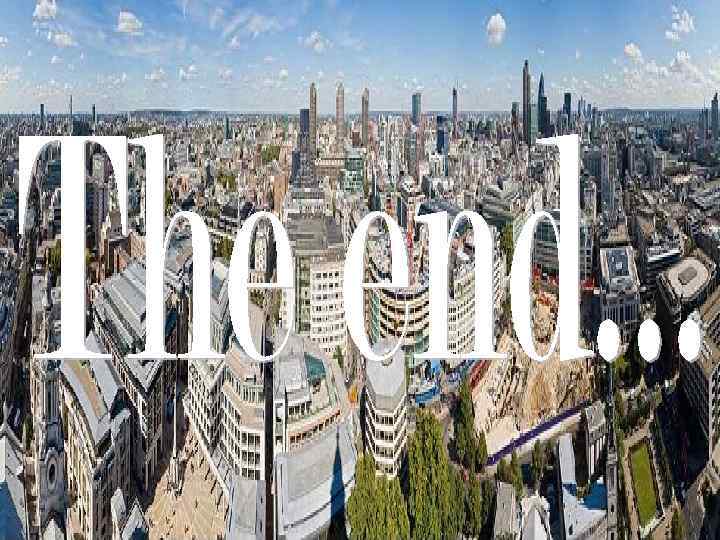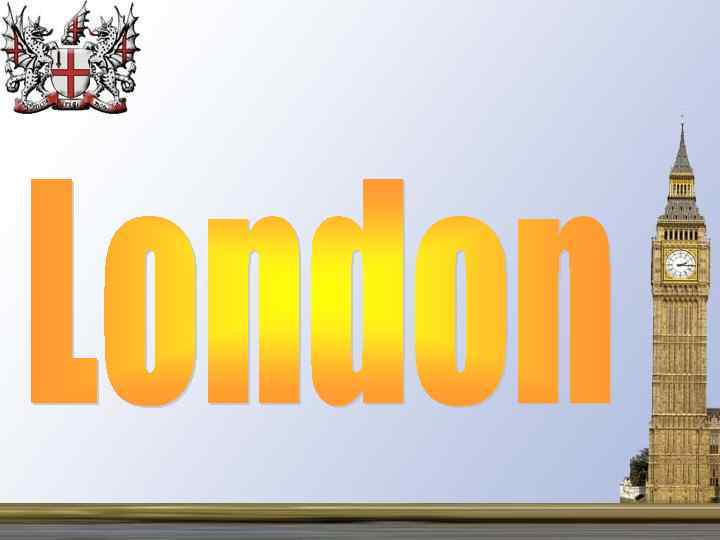
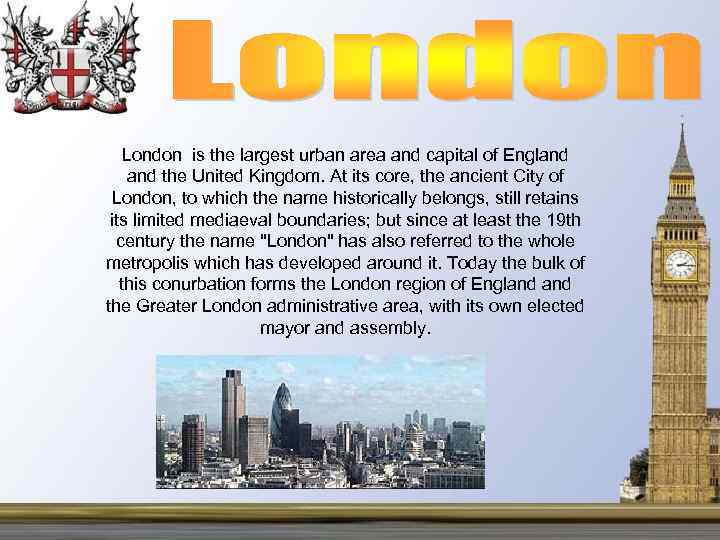
London is the largest urban area and capital of England the United Kingdom. At its core, the ancient City of London, to which the name historically belongs, still retains its limited mediaeval boundaries; but since at least the 19 th century the name "London" has also referred to the whole metropolis which has developed around it. Today the bulk of this conurbation forms the London region of England the Greater London administrative area, with its own elected mayor and assembly.
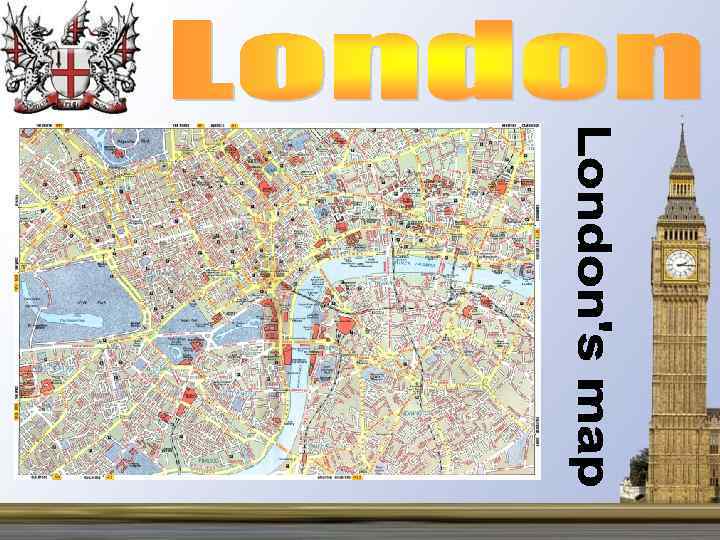
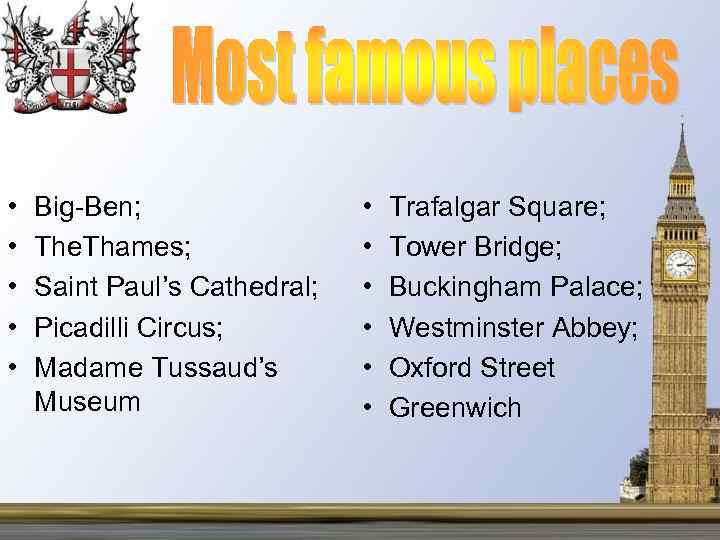
• • • Big-Ben; The. Thames; Saint Paul’s Cathedral; Picadilli Circus; Madame Tussaud’s Museum • • • Trafalgar Square; Tower Bridge; Buckingham Palace; Westminster Abbey; Oxford Street Greenwich
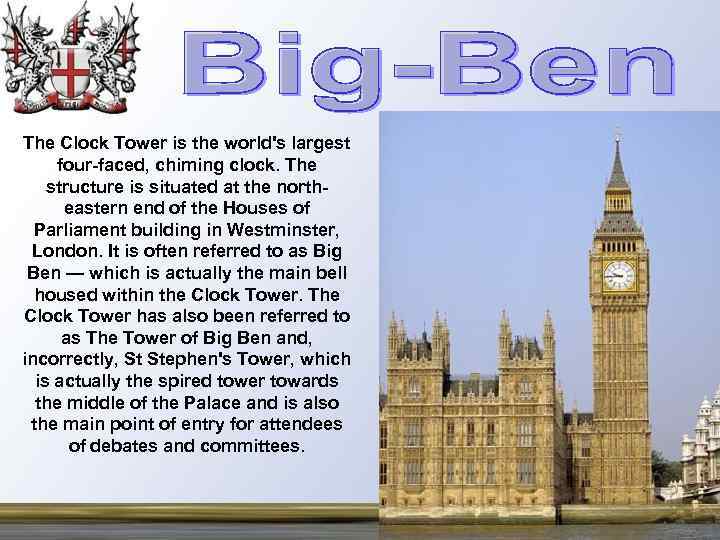
The Clock Tower is the world's largest four-faced, chiming clock. The structure is situated at the northeastern end of the Houses of Parliament building in Westminster, London. It is often referred to as Big Ben — which is actually the main bell housed within the Clock Tower. The Clock Tower has also been referred to as The Tower of Big Ben and, incorrectly, St Stephen's Tower, which is actually the spired tower towards the middle of the Palace and is also the main point of entry for attendees of debates and committees.
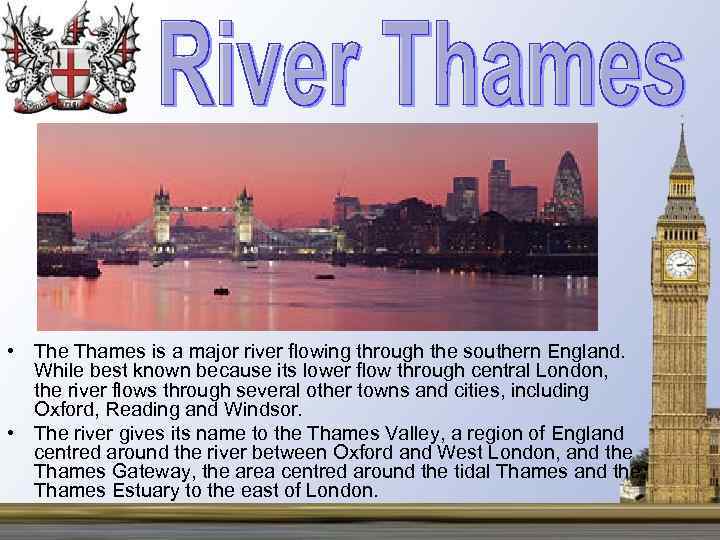
• The Thames is a major river flowing through the southern England. While best known because its lower flow through central London, the river flows through several other towns and cities, including Oxford, Reading and Windsor. • The river gives its name to the Thames Valley, a region of England centred around the river between Oxford and West London, and the Thames Gateway, the area centred around the tidal Thames and the Thames Estuary to the east of London.
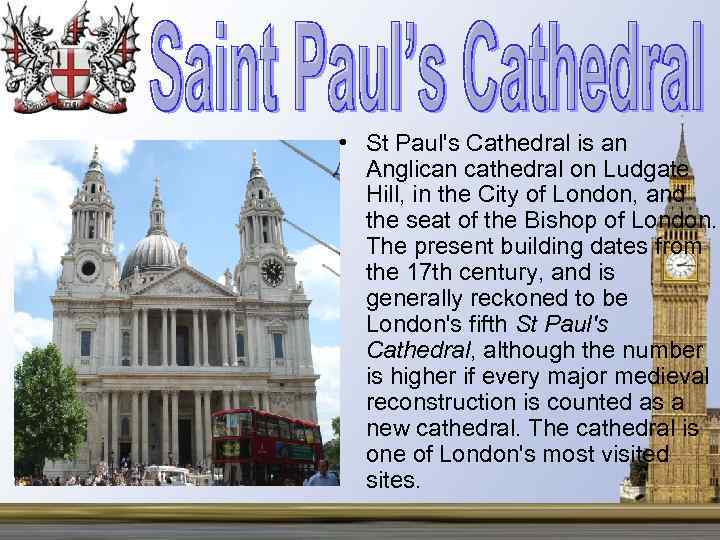
• St Paul's Cathedral is an Anglican cathedral on Ludgate Hill, in the City of London, and the seat of the Bishop of London. The present building dates from the 17 th century, and is generally reckoned to be London's fifth St Paul's Cathedral, although the number is higher if every major medieval reconstruction is counted as a new cathedral. The cathedral is one of London's most visited sites.
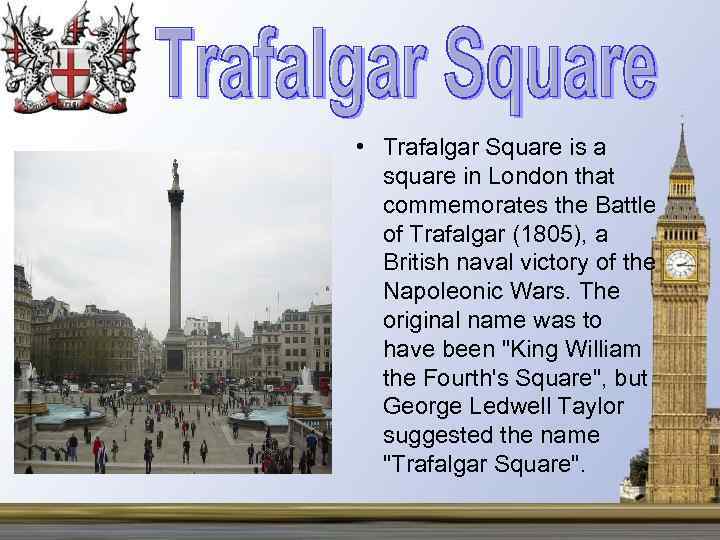
• Trafalgar Square is a square in London that commemorates the Battle of Trafalgar (1805), a British naval victory of the Napoleonic Wars. The original name was to have been "King William the Fourth's Square", but George Ledwell Taylor suggested the name "Trafalgar Square".
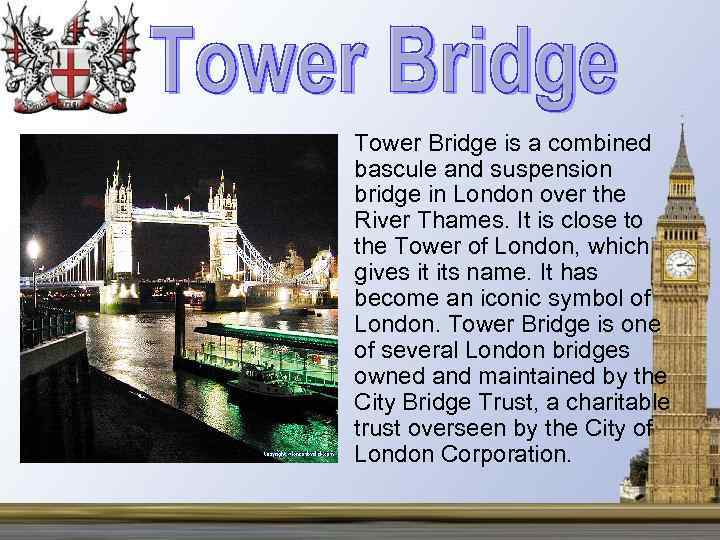
• Tower Bridge is a combined bascule and suspension bridge in London over the River Thames. It is close to the Tower of London, which gives it its name. It has become an iconic symbol of London. Tower Bridge is one of several London bridges owned and maintained by the City Bridge Trust, a charitable trust overseen by the City of London Corporation.
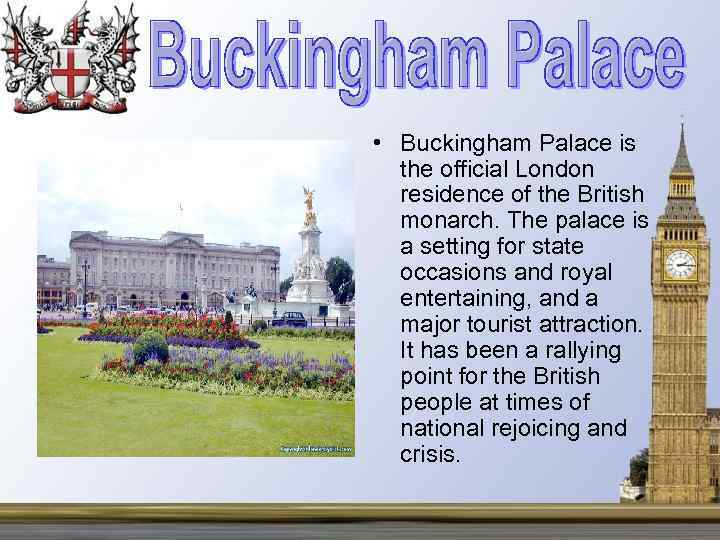
• Buckingham Palace is the official London residence of the British monarch. The palace is a setting for state occasions and royal entertaining, and a major tourist attraction. It has been a rallying point for the British people at times of national rejoicing and crisis.
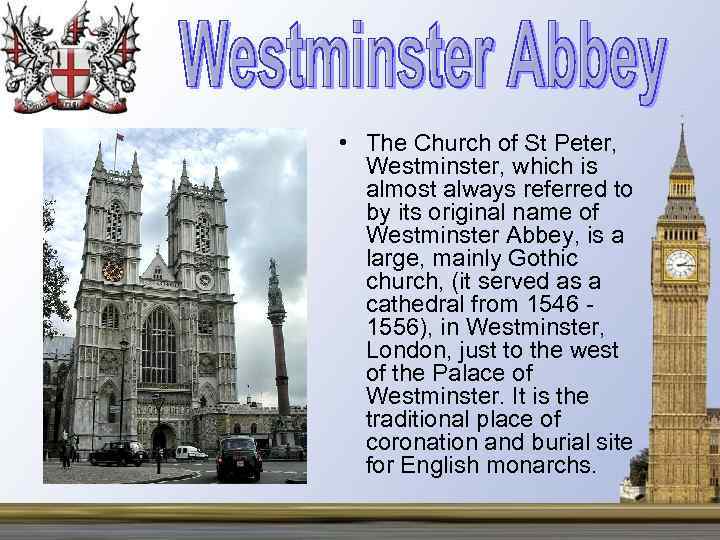
• The Church of St Peter, Westminster, which is almost always referred to by its original name of Westminster Abbey, is a large, mainly Gothic church, (it served as a cathedral from 1546 1556), in Westminster, London, just to the west of the Palace of Westminster. It is the traditional place of coronation and burial site for English monarchs.
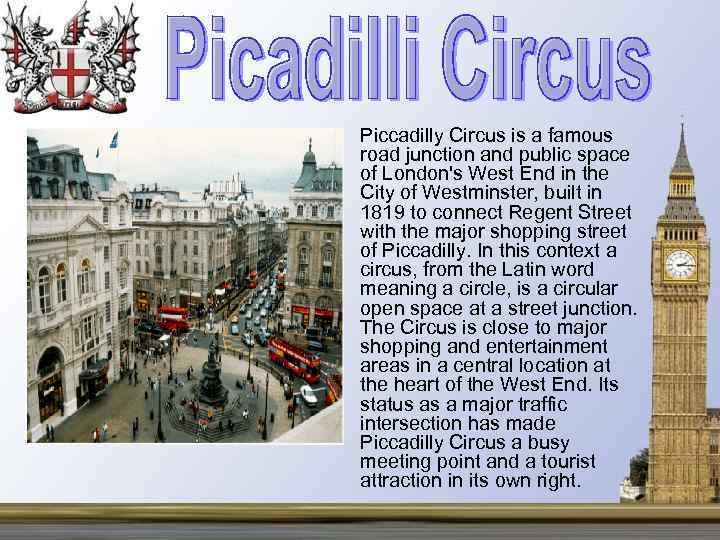
• Piccadilly Circus is a famous road junction and public space of London's West End in the City of Westminster, built in 1819 to connect Regent Street with the major shopping street of Piccadilly. In this context a circus, from the Latin word meaning a circle, is a circular open space at a street junction. The Circus is close to major shopping and entertainment areas in a central location at the heart of the West End. Its status as a major traffic intersection has made Piccadilly Circus a busy meeting point and a tourist attraction in its own right.
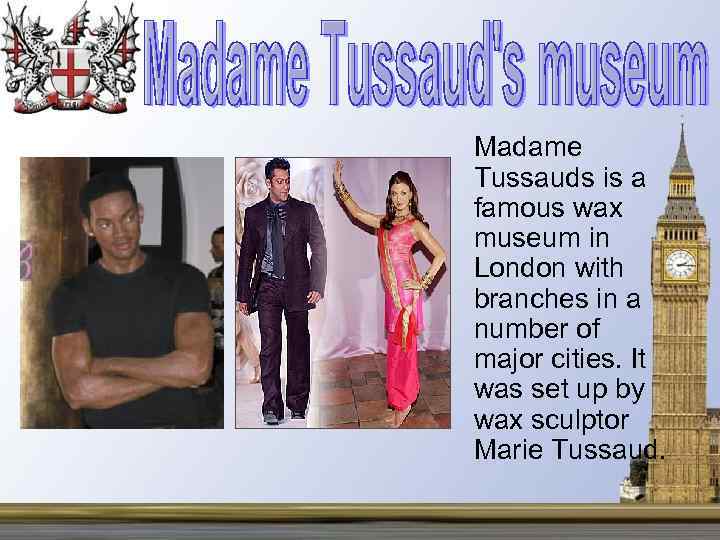
Madame Tussauds is a famous wax museum in London with branches in a number of major cities. It was set up by wax sculptor Marie Tussaud.
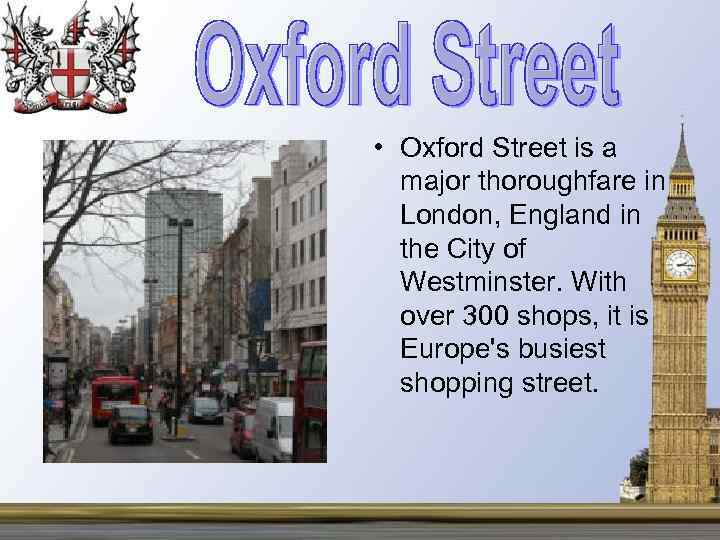
• Oxford Street is a major thoroughfare in London, England in the City of Westminster. With over 300 shops, it is Europe's busiest shopping street.
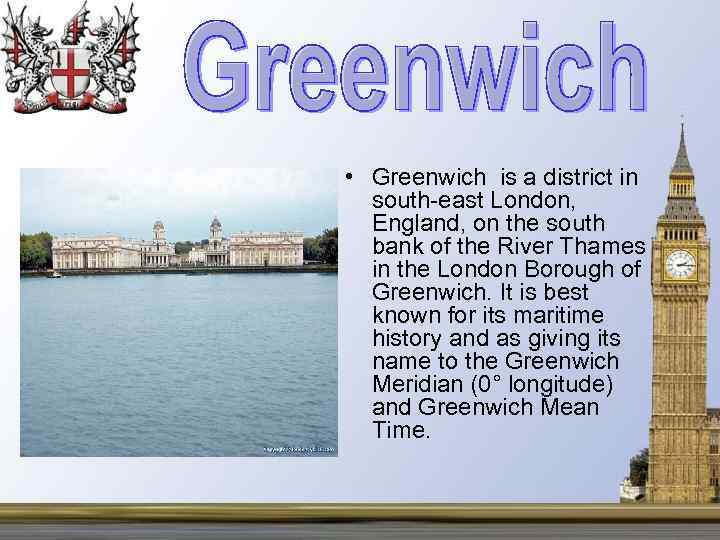
• Greenwich is a district in south-east London, England, on the south bank of the River Thames in the London Borough of Greenwich. It is best known for its maritime history and as giving its name to the Greenwich Meridian (0° longitude) and Greenwich Mean Time.
